The Aluar Pearls
The band's sound derives from a wide range of African, Caribbean and Latin American styles. Don't ask them to play "Freebird."
Collaborators since their teenage years, Milwaukee natives Bryan Rogers and Mathew Wilson founded The Aluar Pearls in May 2013. Wilson describes the band’s sound as “soul-explosive, afro-Caribbean, Milwaukee music from Riverwest.” The eclectic and individualistic vibe of The Aluar Pearls makes them distinctive; The nine-piece band draws inspiration from a variety of genres and incorporates those sounds into their own unique sound. The Aluar Pearls have played all throughout the Milwaukee area and are looking to venture outside the city soon. Their next show is on July 9 at the Cathedral Square Stage for Bastille Days. We recently spoke with Wilson about the band.
How and why was your band formed?
The group was born in May 2013. While we were both on the road as part of an (inter)nationally touring band based in Chicago, Bryan Rogers and I received the call that a monthly service industry party in Milwaukee was in need of a house band that would play West-African party music. He and I have been collaborating in music since our teens and have been studying various African styles of music for nearly as long. I brought together the musicians in town who I thought would best serve the style. We rehearsed once and then a few days later played our first show. We were standing around at the end of the night, looking at each other and found we’d had far too much fun to let it be a one-off thing.
Was there a particular band that inspired you?
There was definitely one compilation that happened to be in heavy rotation when we received the call to get things together — Nigeria Special Vol.1 from Soundway Records. Other inspirations were musicians Ebo Taylor, Fela Kuti, Tinariwen, Group Doueh, Karim Ziad, Willie Colon and Jacki Mittoo.
The word “Aluar” (pronounced AH-loo-ahr) is one that I came across in listening to old East African field recordings. It seemed to pair well linguistically with Pearls. The track from which I borrowed the name had a very stark and visceral quality that I’d hoped to include in the band’s music.
Have you added or lost band members since you began?
We’ve had a very steady line-up. If anything, there has been a slow addition of members and elements as needed. A few of our founding members have been abroad for a few months at a time. In those instances, we have either waited or found people to fill in for them. Our original lead guitarist, Carl Nichols, has spent the majority of the last year musically vagabonding in Turkey, Senegal and Germany. In his stead, we have added Milwaukee premier Gypsy Jazz guitarist Scott Hlavenka, whose sensitivity to different styles of music has really set him apart locally.
What’s the age range of your band members?
17 – 42
How would you describe your music?
Soul-Exposive Afro-Caribbean Milwaukee music from Riverwest.
Who are your influences on the national or international scene?
Internationally is almost exclusively where we source. Modern stuff: Jorge Drexler, Hiatus Kaiyote, Tony Allen, Quantic, Hamid Al Kasri, Tinariwen, Lettuce. Older stuff: Nigerian and Ghanaian Afrobeat & Highlife. Moroccan and Algerian Gnawa music. Desert music from Mauritania & Western Sahara. Batucada and Foro music from Brazil. Caribbean and Latin American music from the 50s to early 70s. And of course, James Brown.
Are there any local bands that have influenced you?
The foremost would probably be De La Buena, with which we share a few key members – notably founding member David Wake. Seeing the way they’ve ignited dance floors for the past ten or so years has definitely been an inspiration. So many bands have indirectly influenced us as well. With nine members, we come from a broad array of influences and musical experiences.
What are your lyrics about?
An array of topics from light innuendo (told from the perspective of the toasted peanut vendor) to lofty (staying humble and grounded through the narcissism of modernity) to songs about marching against the powers that be. Primarily we are about encouraging a feeling of tension and release in the listener through the music.
Do you aim for any social or political commentary with your music?
Afrobeat is a music historically tied to social upheaval and fighting the power through its founder Fela Kuti. We don’t identify ourselves as an exclusive purveyor of that or any other genre of music, but the socio-political aspect of that style is one that we intend to keep exploring. At different stages in our development we have taken to performing the songs “War Is a Crime” from Antibalas, “(Everything) Upsidedown” and “Johnny Just Drop” from Fela Kuti and a couple original songs that talk about actively affecting a cultural shift.
What do you think of the local music scene?
The rise of the Internet and easy access to all the music ever recorded is both a blessing and curse for live music everywhere. The good side is that it’s pushing musicians to focus on the total package of what a band and brand can be – presenting something that’s enlivening on more than the traditional level of music appreciation. The risk associated with this healthy exercise is that the band may become more concerned with the smoke and mirrors of branding and not the potency of the music. Some Milwaukee artists have been doing a great job: GGOOLLDD, The Fatty Acids, Jaill, WebsterX, Klassik, Soul Low, etc…
Do you think the city has the potential to become nationally known for its music scene?
On the level of say Austin, Nashville or even Chicago? No, but I also don’t see this as a hindrance to any of the local musicians and bands from honoring themselves and their art to the best of their ability. But there just isn’t enough money here to support to a widespread refulgence in musical creativity and a resulting “scene”.
What makes your band uniquely Milwaukee?
I suppose it would be the personal take we have on styles that don’t originate from this region or even this hemisphere. We sound like we are from Milwaukee, not Lagos or Bogota or Timbuktu, though we play some songs and rhythms derived from those places.
Where does your band most often play in Milwaukee?
The Jazz Estate, Boone & Crockett and Hotel Foster and then more recently at Public House, Club Timbuktu, BBC and Shank Hall.
Has your band toured and to where?
We haven’t played outside of Milwaukee yet, but planning for an event in Chicago is in the works. Several members of our band currently are or have, in the past, toured internationally with various artists.
Do you have a future album in the works?
We haven’t yet released the handful of songs that’ve been “in the can” for a little while now. We don’t intend to wait for the completion of a full length album to release what we’ve been working on.
Do you have other future plans?
We’ll continue to play shows in Milwaukee, but intend to shift our main sights on writing and recording music we find pleasing. To eventually join forces with a label, collaborate with artists from other places and do some traveling is certainly on the horizon as well. The end goal of moving people to dance and to higher states of being with music, which we already accomplish to some degree, combined with affecting some positive change in the communities around us is of course the dream.
What is the hardest thing about keeping a band going?
With nine people, we are lucky to have not had the classic clashing of egos that so many bands experience. For us, it’s been a matter of getting everyone to the same rehearsal that presents the biggest challenge.
What is the dumbest thing any one has ever asked of your band?
“Freebird!”
Band of the Week
-
Johnson Opposes Ventilators, Pushes Horse Medicine
 Aug 23rd, 2021 by Bruce Murphy
Aug 23rd, 2021 by Bruce Murphy
-
David Clarke Is Still Crazy
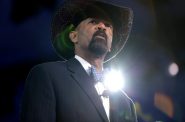 Mar 16th, 2020 by Bruce Murphy
Mar 16th, 2020 by Bruce Murphy
-
Yo-Dot Could Be Big Tomorrow
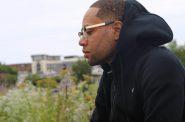 Apr 3rd, 2017 by Mitchel Writt
Apr 3rd, 2017 by Mitchel Writt



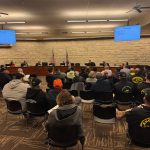


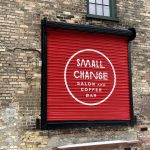












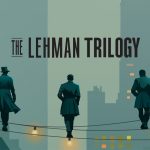
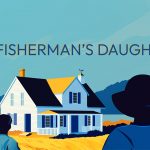

What is the meaning of the word “aluar”? Is it a type of pearl? I looked it up and found nothing, but did find “luar”, although this was in many Spanish descriptions (which I couldn’t understand).